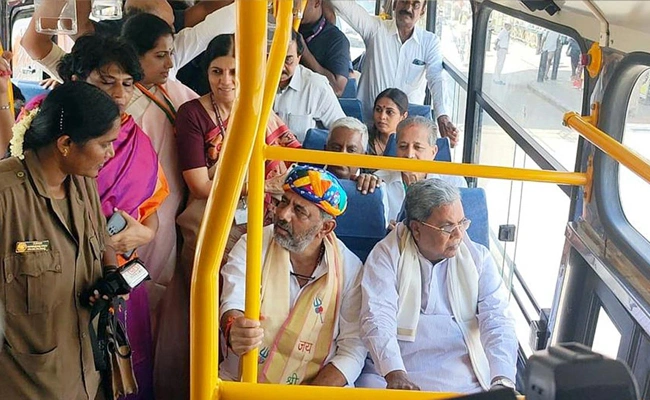
India News

For decades, political parties have been luring voters with promises of freebies to secure power. Despite repeated warnings from financial experts and the Supreme Court about the economic harm caused by such schemes, governments continue to ignore these concerns.
The excessive implementation of free schemes has left governments struggling with financial burdens. While these schemes are popular with the public, they often lead to unsustainable economic consequences. Citizens have grown accustomed to these benefits and resist their withdrawal. If a party tries to discontinue a free scheme, it risks losing public support and potentially not returning to power.
This is precisely what happened in Karnataka. To gain power, the Congress party introduced free bus travel for women. However, this initiative quickly turned into a financial liability for the government. Within a year, the free travel scheme became a burden, and the state found itself unable to sustain it or roll it back without repercussions.
To manage the financial strain, the Siddaramaiah government resorted to increasing bus fares for paying passengers, raising ticket prices by 15%. The free bus travel for women caused significant losses for the state's road transport corporations, exceeding Rs 1,000 crore. This financial shortfall left the corporations struggling even to pay salaries, pushing them to the brink of bankruptcy.
Efforts to discontinue the free bus travel scheme were met with mixed reactions. Some women expressed willingness to purchase tickets, but the government eventually decided to review the scheme instead of abolishing it.
By increasing ticket prices for non-beneficiaries, the burden has been shifted onto the paying public. Telangana, which also offers free bus travel for women, may face a similar financial crisis in the future, following Karnataka's trajectory.
Advertisment